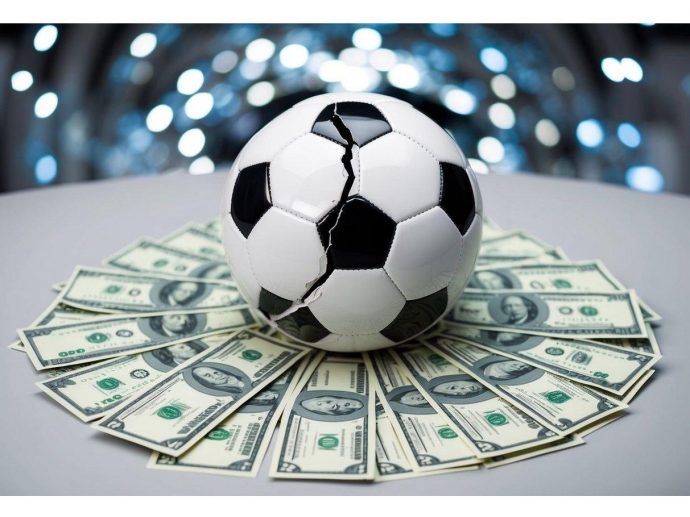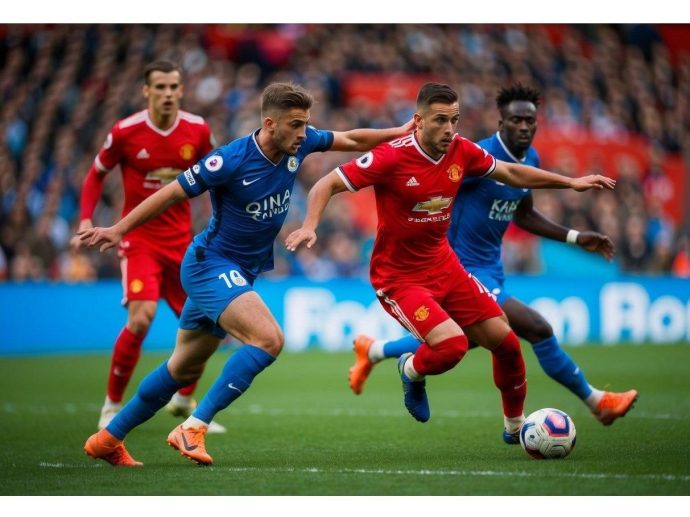Categories more
- Adventures (16)
- Arts / Collectables (15)
- Automotive (37)
- Aviation (10)
- Bath, Body, & Health (75)
- Children (6)
- Cigars / Spirits (30)
- Cuisine (16)
- Design/Architecture (19)
- Electronics (12)
- Entertainment (4)
- Event Planning (3)
- Fashion (44)
- Finance (9)
- Gifts / Misc (6)
- Home Decor (44)
- Jewelry (39)
- Pets (3)
- Philanthropy (1)
- Real Estate (12)
- Services (22)
- Sports / Golf (14)
- Vacation / Travel (60)
- Watches / Pens (14)
- Wines / Vines (24)
- Yachting / Boating (15)
How to Spot Fixed Matches in Online Football Betting: Key Indicators and Red Flags
Published
01/06/2025Online football betting can be exciting, but it's crucial to stay alert for fixed matches. I've learned that spotting these rigged games isn't always easy, but there are some key signs to watch out for. Unusual betting patterns or sudden odds changes on platforms like UFA can be red flags that a match might be fixed.
I've found that paying attention to team news and player performance can also help. If a star player is suddenly benched or a team's tactics seem off, it might be worth investigating further. It's important to remember that while these signs don't always mean a match is fixed, they're worth noting.
Staying informed and using trusted betting platforms are key steps in avoiding fixed matches. I always make sure to do my research and only bet on games from reputable leagues and tournaments. This approach has helped me enjoy football betting while minimizing the risk of falling victim to match-fixing scams.
Key Takeaways
- Watch for sudden changes in betting odds or unusual betting patterns
- Pay attention to team news and unexpected player or tactical decisions
- Use trusted betting platforms and focus on reputable leagues and tournaments
Recognizing the Signs of Fixed Matches
Fixed matches can be tricky to spot, but there are telltale signs to watch for. I'll share key indicators that might suggest a match isn't on the level.
Understanding Betting Odds
Sudden changes in odds can be a red flag. I keep an eye on how odds move before a match. If a team's odds to win shift dramatically without any clear reason, it's suspicious.
For example, if a lower-ranked team suddenly becomes the favorite to win against a top team, that's odd. No major player injuries or weather changes? Then why the shift?
I also look at odds across different betting sites. If one site has very different odds from the rest, it could mean they have inside info about a fix.
Analyzing Betting Patterns
Unusual betting patterns are another clue. I watch for large amounts of money placed on specific outcomes. This is especially true for less popular leagues or matches.
If lots of bets come in for a certain result just before a game starts, that's fishy. It might mean some people know something others don't.
I also pay attention to bets on things that don't affect the final score. Like the number of corner kicks or yellow cards. Big bets on these can hint at a fix.
In-Play Betting Anomalies
Live betting during a match can show signs of fixing too. I watch for odds that don't match what's happening on the field.
If a team is dominating but their odds to win keep getting worse, that's weird. Or if lots of money suddenly pours in on a specific event, like the next goal.
Strange player behavior is another tip-off. A goalkeeper making obvious mistakes or a striker missing easy shots could mean the fix is in.
I always trust my gut. If something feels off about how a game is going, it probably is.
Investigating the Role of Bookmakers and Betfair
Bookmakers and betting exchanges play a key part in spotting fixed matches. They track betting patterns and odds movements that can reveal suspicious activity.
Bookmaker Red Flags
I look for sudden, unexplained changes in odds when checking bookmakers for signs of match-fixing. A big shift in the odds for a specific outcome, like a team suddenly becoming heavy favorites, can be suspicious.
Unusually high betting limits on obscure matches are another warning sign. Bookies may increase limits if they suspect insider information is driving bets.
I also watch for an imbalance in bets. If one side is getting way more action than expected, it could mean some bettors have inside knowledge.
Bookmakers sometimes close betting markets early if they suspect foul play. This protects them from major losses on fixed matches.
Betting Exchange Indicators
On Betfair and other exchanges, I check for strange betting patterns. A flood of money on an unlikely outcome can signal match-fixing.
High volumes on obscure matches or markets are suspicious. Fixers often target lesser-known games to avoid detection.
I look at the amounts being matched. Unusually large bets, especially close to game time, may indicate insider information.
The price movements on exchanges can reveal fixing attempts. Sharp drops in odds without any apparent reason are a red flag.
I also compare exchange prices to traditional bookmaker odds. Big differences could mean some bettors have non-public info about the match.
Notable Historical Cases of Match-Fixing in Football
Match-fixing has rocked the football world several times. I'll look at some of the biggest scandals that shook the sport to its core.
Serie A and the Calciopoli Scandal
The 2006 Calciopoli scandal in Italy's Serie A was huge. It involved top clubs like Juventus, AC Milan, Lazio, and Fiorentina. These teams tried to pick referees for their games.
Juventus got hit hardest. They lost two league titles and were sent down to Serie B. Other clubs faced point deductions and fines.
This scandal showed how deep match-fixing can go. It wasn't just players on the field - it reached into the highest levels of Italian football.
Other Prominent Football Betting Scandals
In 2009, a big match-fixing ring was busted in Europe. Police raids in many countries caught about 200 people. They were fixing matches for betting.
I've also learned about "ghost matches." These are fake games that never happened. Criminals make them up to trick bookies and bettors.
In England, match-fixing goes way back. From 1893 to 1898, there were "test matches" to decide which teams moved up or down divisions. Some of these games had fishy results.
These cases show match-fixing is a constant threat. It can happen anywhere, from top leagues to lower divisions.
Adopting a Robust Betting Strategy
A smart betting strategy focuses on finding value and avoiding scams. I'll share key tips to help you make better bets and steer clear of traps.
Developing a Value Bet Approach
Value betting is all about finding odds that are higher than they should be. I look for bets where the actual chance of winning is greater than what the odds suggest. To do this, I research teams, players, and recent form. I also check multiple bookmakers to compare odds.
I never rely on just one source of information. Instead, I gather data from sports news, team websites, and expert analyses. This helps me spot good betting opportunities.
I also keep track of my bets in a spreadsheet. This lets me see which types of bets work best for me over time. By focusing on value, I can make smarter bets and increase my chances of long-term success.
Identifying and Avoiding Scams
Fixed match scams are a big problem in sports betting. I'm always on guard against offers of "guaranteed wins" or "insider information." These are almost always fake and can lead to big losses.
I stick to well-known, licensed bookmakers. If a deal seems too good to be true, it probably is. I never trust random people on social media or messaging apps who claim to have inside knowledge.
I also watch out for sudden, unusual changes in odds. This could be a sign of suspicious activity. If I see this, I avoid betting on that match.
Remember, there's no such thing as a sure bet in sports. By staying alert and using common sense, I protect myself from scams and focus on legitimate betting opportunities.



















